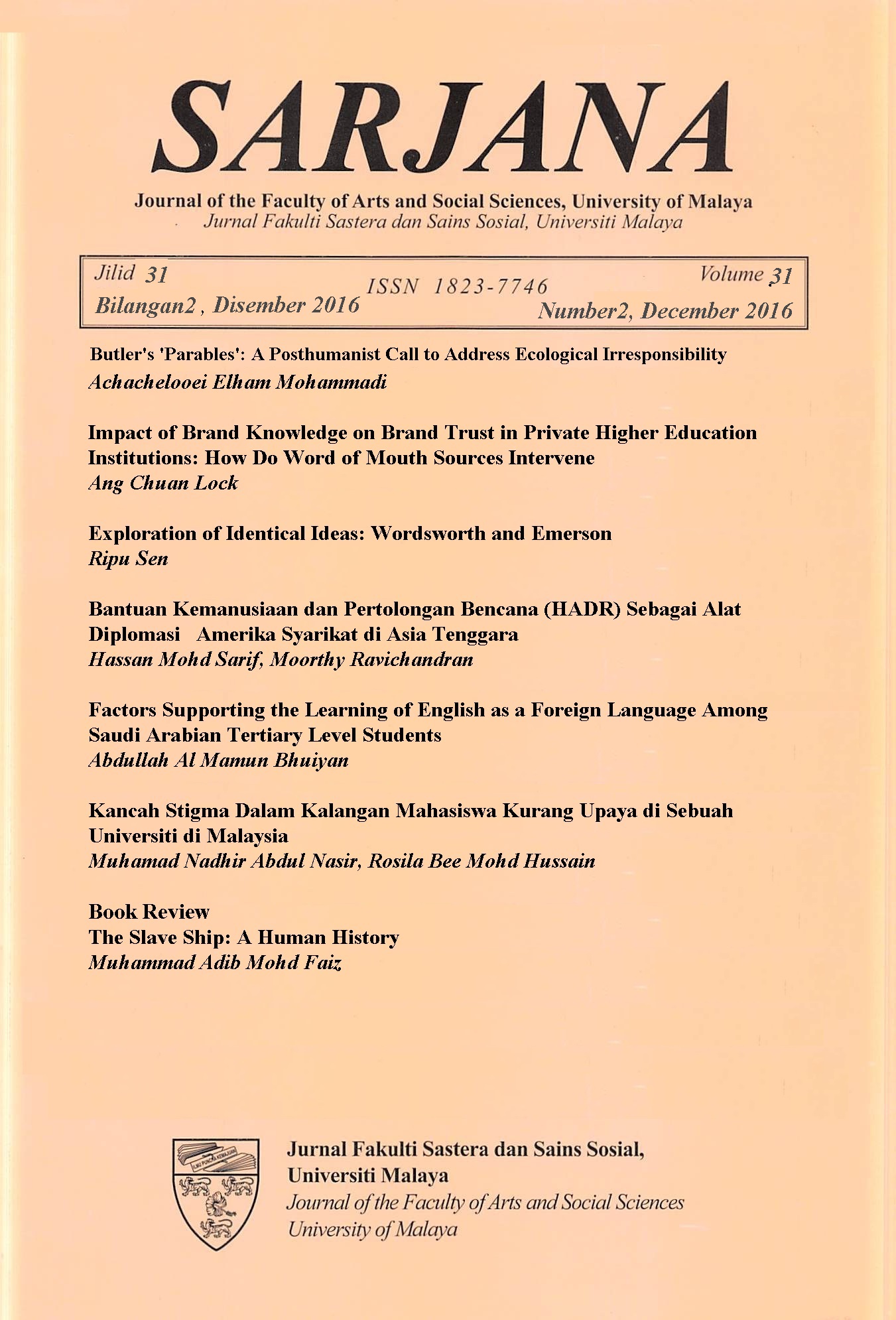Butler's 'Parables': A Posthumanist Call to Address Ecological Irresponsibility
Main Article Content
Abstract
This article explores the relationship between a posthuman representative of humanity and nature in Octavia Butler's 'Parable of the Sower' (2007) and 'Parable of the Talents' (2007). Using Rosemary Radford Ruether's feminist Biblical ideas, the article argues that the stories, as samples of science fiction, expose a posthumanist perspective where existence of human kind is defined based on a mutual, non-hierarchical relationship between human beings and nature. This article aims to explore the positive standpoint of science fiction towards the transformation of the human-nature relationship through an unothered perspective and, in this way, illustrate the potential for a more sustainable life on Earth. The relationship is investigated through an unorthodox theological perspective that confronts the institutionalized Christian concept of man as the true representative of God on Earth. In this way, the stories describe a fictional space in which the Christian concept of nature and woman as surrendered before male human kind as God's exclusive representative is substituted with an unorthodox theological perspective. This theological view is based on the recognition of a correlation between human and nature free from surrender. This article explores the entity of this correlation.

